The Sunshine Vitamin: Exploring the Power of Vitamin D for Health and Wellness
Have you ever noticed how a sunny day can instantly brighten your mood and leave you feeling energized? That's not just a coincidence. The warm rays of sunlight provide more than just a pleasant outdoor experience—they also play a crucial role in our overall health and well-being. At the heart of this sun-powered connection lies an essential nutrient called vitamin D. Often referred to as the "sunshine vitamin," vitamin D holds incredible significance for our bodies and is intricately linked to sunlight. In this article, we'll dive deep into the fascinating world of vitamin D, exploring its importance, sources, and the remarkable ways it supports our health.
What is Vitamin D?
Vitamin D is a fat-soluble vitamin that is essential for our overall health and well-being. It exists in several different forms, with the two most important ones being vitamin D2 (ergocalciferol) and vitamin D3 (cholecalciferol). Vitamin D2 is primarily derived from plant sources, while vitamin D3 is synthesized in our skin when it is exposed to sunlight. Both forms can also be obtained through dietary sources and supplements.
Sunlight is the most natural and efficient way for our bodies to produce vitamin D. When our skin is exposed to UVB rays from sunlight, a remarkable process is set in motion. Cholesterol in the skin undergoes a conversion, resulting in the synthesis of vitamin D3. However, it's important to note that excessive sun exposure without proper protection can increase the risk of skin damage and conditions like sunburn and skin cancer. Therefore, it's essential to strike a balance and practice safe sun exposure.
Let's watch a video on how our bodies make vitamin D.
In addition to sunlight, we can also obtain vitamin D from certain foods like like salmon, mackerel, and sardines and/or from fortified foods such as dairy products, orange juice, and breakfast cereals. However, it can be challenging to rely solely on dietary sources to meet our vitamin D needs.
For individuals who have limited sun exposure or struggle to obtain enough vitamin D through sunlight and food, supplements may be recommended. Vitamin D supplements come in two main forms: vitamin D2 and vitamin D3. Vitamin D3, derived from animal sources, is considered more effective at raising and maintaining vitamin D levels in the body.
The Role of Vitamin D in the Body
Vitamin D plays a crucial role in various aspects of our health, extending far beyond its well-known association with bone health. Let's explore some key roles of vitamin D in the body:
Bone Health: One of the primary functions of vitamin D is to support healthy bones. It plays a vital role in calcium absorption and helps regulate calcium and phosphorus levels in the blood. Adequate vitamin D levels are essential for the development, growth, and maintenance of strong bones. It helps prevent conditions like rickets in children and osteoporosis and osteomalacia in adults.
Immune Function: Vitamin D is also involved in supporting a healthy immune system. It plays a role in regulating the immune response and promoting the function of immune cells. Sufficient vitamin D levels may help reduce the risk of certain autoimmune diseases and support overall immune function.
Cardiovascular Health: Emerging research suggests a potential link between vitamin D and cardiovascular health. Adequate vitamin D levels may contribute to the maintenance of healthy blood pressure and support cardiovascular function. However, more research is needed to fully understand the mechanisms and benefits.
Mental Health: Some studies have indicated a potential association between vitamin D deficiency and mental health disorders such as depression and seasonal affective disorder (SAD). While the exact relationship is complex and requires further investigation, ensuring adequate vitamin D levels may play a role in supporting mental well-being.
Other Potential Benefits: Vitamin D's influence extends to other body systems as well. Research suggests its involvement in regulating insulin sensitivity, supporting lung function, and promoting healthy skin. Moreover, ongoing studies explore potential links between vitamin D and the prevention of certain types of cancer, although more research is needed to establish definitive conclusions.
Sources of Vitamin D
Obtaining adequate vitamin D can be achieved through a combination of sunlight exposure, dietary sources, and supplements. Let's explore the different ways you can ensure sufficient vitamin D levels:
Sunlight Exposure: Sunlight is a crucial source of vitamin D. When ultraviolet B (UVB) rays from the sun interact with the skin, a reaction occurs, leading to the production of vitamin D in the body. Spending time outdoors, particularly during midday when the sun's rays are strongest, can promote vitamin D synthesis. However, it's important to balance sun exposure to avoid overexposure and the risk of sunburn or skin damage. Therefore, it's advisable to aim for moderate sun exposure, especially during midday when the sun's rays are the strongest, and to protect the skin with sunscreen after getting sufficient sun exposure to avoid harmful effects. Factors such as geographical location, time of year, skin pigmentation, and sunscreen use can also affect the skin's ability to produce vitamin D.
Dietary Sources: While it can be challenging to obtain sufficient vitamin D through diet alone, certain foods can contribute to your overall vitamin D intake. Fatty fish like salmon, mackerel, and trout are excellent sources of vitamin D. These fish contain high levels of naturally occurring vitamin D3. Additionally, some fortified foods such as dairy products, orange juice, and breakfast cereals are enriched with vitamin D to help increase intake. However, it's essential to check product labels to ensure adequate vitamin D content.
Obtaining adequate vitamin D can be achieved through a combination of sunlight exposure, dietary sources, and supplements. Let's explore the different ways you can ensure sufficient vitamin D levels:
Sunlight Exposure: Sunlight is a crucial source of vitamin D. When ultraviolet B (UVB) rays from the sun interact with the skin, a reaction occurs, leading to the production of vitamin D in the body. Spending time outdoors, particularly during midday when the sun's rays are strongest, can promote vitamin D synthesis. However, it's important to balance sun exposure to avoid overexposure and the risk of sunburn or skin damage. Therefore, it's advisable to aim for moderate sun exposure, especially during midday when the sun's rays are the strongest, and to protect the skin with sunscreen after getting sufficient sun exposure to avoid harmful effects. Factors such as geographical location, time of year, skin pigmentation, and sunscreen use can also affect the skin's ability to produce vitamin D.
Dietary Sources: While it can be challenging to obtain sufficient vitamin D through diet alone, certain foods can contribute to your overall vitamin D intake. Fatty fish like salmon, mackerel, and trout are excellent sources of vitamin D. These fish contain high levels of naturally occurring vitamin D3. Additionally, some fortified foods such as dairy products, orange juice, and breakfast cereals are enriched with vitamin D to help increase intake. However, it's essential to check product labels to ensure adequate vitamin D content.
Vitamin D Supplements: In some cases, meeting vitamin D requirements solely through sunlight and diet may be challenging. For individuals with limited sun exposure, those living in higher latitudes with limited sunlight during certain seasons, or those with specific dietary restrictions, vitamin D supplementation may be necessary. Vitamin D supplements come in various forms, including capsules, tablets, and liquid drops. It's advisable to consult with a healthcare professional to determine the appropriate dosage and duration of supplementation based on individual needs.
It's important to note that maintaining optimal vitamin D levels is a balance between sunlight exposure, dietary sources, and supplements, especially in situations where obtaining sufficient vitamin D through natural sources alone may be challenging. Regular sun exposure, consuming vitamin D-rich foods, and considering supplements when necessary can help ensure adequate vitamin D levels for overall health and well-being. Remember to consult with a healthcare professional for personalized guidance on vitamin D supplementation.
Vitamin D Deficiency
Vitamin D deficiency is a prevalent concern worldwide, affecting individuals of all ages and backgrounds. Several factors can contribute to vitamin D deficiency, and it's essential to be aware of the signs, symptoms, and potential health implications associated with inadequate vitamin D levels.Causes and Risk Factors for Vitamin D Deficiency
Limited Sun Exposure: Insufficient exposure to sunlight, either due to living in regions with limited sunlight or spending most of the time indoors, can increase the risk of vitamin D deficiency.
Seasonal Variation: In regions with significant seasonal variations, vitamin D deficiency may be more common during the winter months when sunlight exposure is reduced.
Sunscreen Use: While using sunscreen is crucial for protecting the skin from harmful UV rays, it can also hinder the skin's ability to produce vitamin D. It's recommended to strike a balance between sun protection and obtaining adequate sunlight for vitamin D synthesis.
Darker Skin Pigmentation: Individuals with darker skin have higher levels of melanin, which reduces the skin's ability to produce vitamin D in response to sunlight. Consequently, people with darker skin may require more sun exposure or dietary sources to maintain sufficient vitamin D levels.
Age and Lifestyle Factors: Older adults, infants exclusively breastfed without vitamin D supplementation, individuals with limited mobility, and those who follow strict vegetarian or vegan diets may be at a higher risk of vitamin D deficiency.
Signs and Symptoms of Vitamin D Deficiency
Bone and Muscle Weakness: Vitamin D plays a vital role in calcium absorption and bone health. Deficiency can lead to weakened bones, increased risk of fractures, and muscle weakness.
Fatigue and General Weakness: Inadequate vitamin D levels may contribute to feelings of fatigue and overall weakness.
Impaired Immune Function: Vitamin D is involved in immune system regulation. Low levels of vitamin D have been linked to an increased susceptibility to infections and a weakened immune response.
Health Implications and Long-Term Effects
Prolonged vitamin D deficiency can have significant health implications. It has been associated with conditions such as:
Osteoporosis and Bone Diseases: Inadequate vitamin D levels can impair calcium absorption, leading to reduced bone mineral density and an increased risk of osteoporosis and bone fractures.
Increased Cardiovascular Risk: Research suggests that vitamin D deficiency may be linked to an increased risk of cardiovascular diseases, including hypertension, heart disease, and stroke.
Impaired Immune Function: Low vitamin D levels can compromise immune system function, making individuals more susceptible to infections and autoimmune disorders.
Mood Disorders: Some studies have shown an association between vitamin D deficiency and an increased risk of mood disorders such as depression and seasonal affective disorder (SAD).
Impaired Cognitive Function: Adequate vitamin D levels are important for brain health, and deficiency has been linked to cognitive decline and an increased risk of neurodegenerative disorders.
If you suspect you may have vitamin D deficiency or are experiencing any of the associated symptoms, it's important to consult with a healthcare professional. A simple blood test can assess your vitamin D levels, and your healthcare provider can guide you on appropriate supplementation or other interventions to address the deficiency.
By understanding the causes, risk factors, signs, and potential health implications of vitamin D deficiency, you can take proactive steps to maintain optimal vitamin D levels and support your overall health and well-being.
Recommended Daily Intake and Guidelines
The recommended daily intake of vitamin D can vary based on factors such as age, sex, and overall health. The following guidelines are commonly recommended:
Infants: 400-1,000 IU (International Units) per day, depending on age and individual circumstances. Breastfed infants may require vitamin D supplements, especially if they have limited sunlight exposure.
Children and Adolescents: 600-1,000 IU per day. It's important to ensure children and adolescents receive adequate vitamin D to support healthy bone development and growth.
Adults: 600-4,000 IU per day. The recommended daily intake may vary for adults based on factors such as age, sun exposure, dietary intake, and underlying health conditions. It's advisable to consult with a healthcare professional for personalized recommendations.
Older Adults: 800-4,000 IU per day. Older adults may have reduced skin synthesis of vitamin D and may require supplementation to maintain adequate levels.
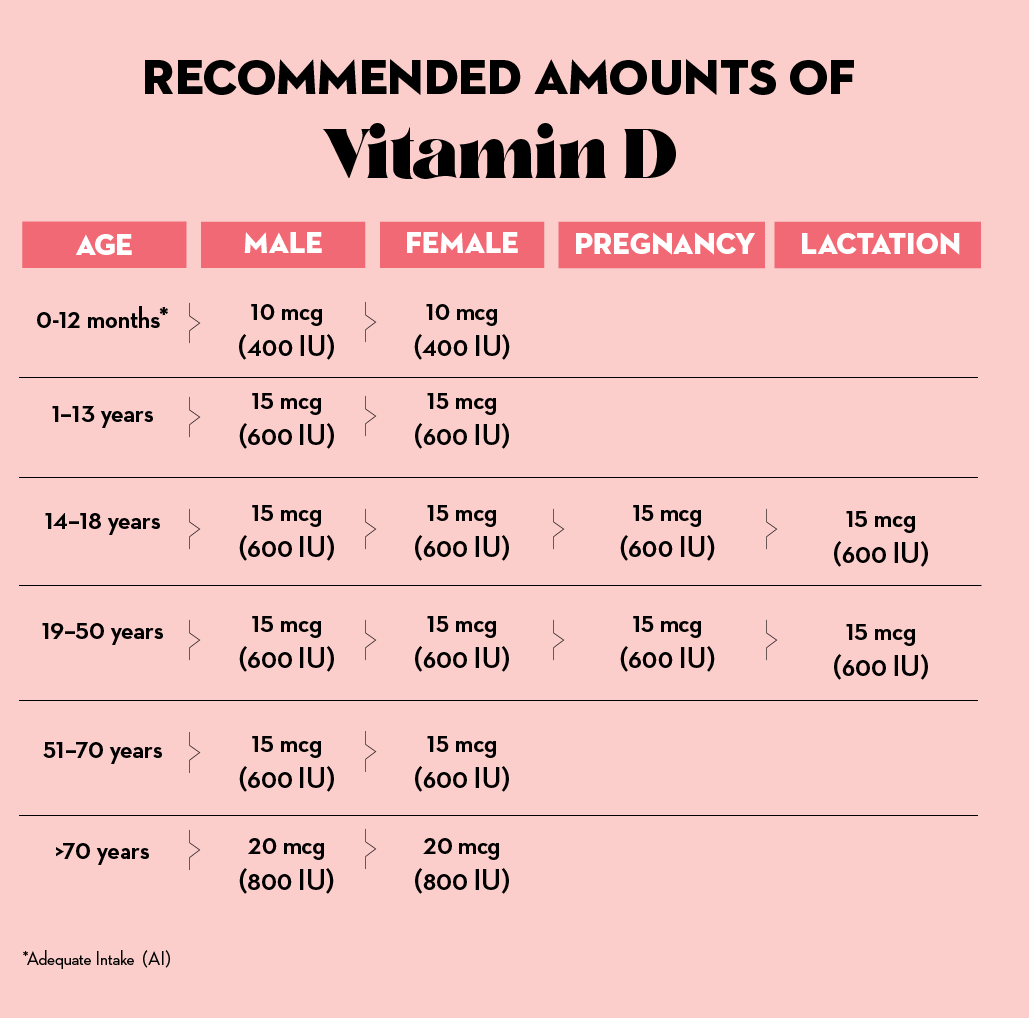
It's worth noting that the guidelines for vitamin D intake may vary slightly across different countries and expert recommendations. Consulting with a healthcare professional is essential to determine the appropriate dosage for your specific needs.
Prolonged vitamin D deficiency can have significant health implications. It has been associated with conditions such as:
Osteoporosis and Bone Diseases: Inadequate vitamin D levels can impair calcium absorption, leading to reduced bone mineral density and an increased risk of osteoporosis and bone fractures.
Increased Cardiovascular Risk: Research suggests that vitamin D deficiency may be linked to an increased risk of cardiovascular diseases, including hypertension, heart disease, and stroke.
Impaired Immune Function: Low vitamin D levels can compromise immune system function, making individuals more susceptible to infections and autoimmune disorders.
Mood Disorders: Some studies have shown an association between vitamin D deficiency and an increased risk of mood disorders such as depression and seasonal affective disorder (SAD).
Impaired Cognitive Function: Adequate vitamin D levels are important for brain health, and deficiency has been linked to cognitive decline and an increased risk of neurodegenerative disorders.
If you suspect you may have vitamin D deficiency or are experiencing any of the associated symptoms, it's important to consult with a healthcare professional. A simple blood test can assess your vitamin D levels, and your healthcare provider can guide you on appropriate supplementation or other interventions to address the deficiency.
By understanding the causes, risk factors, signs, and potential health implications of vitamin D deficiency, you can take proactive steps to maintain optimal vitamin D levels and support your overall health and well-being.
Recommended Daily Intake and Guidelines
The recommended daily intake of vitamin D can vary based on factors such as age, sex, and overall health. The following guidelines are commonly recommended:
Infants: 400-1,000 IU (International Units) per day, depending on age and individual circumstances. Breastfed infants may require vitamin D supplements, especially if they have limited sunlight exposure.
Children and Adolescents: 600-1,000 IU per day. It's important to ensure children and adolescents receive adequate vitamin D to support healthy bone development and growth.
Adults: 600-4,000 IU per day. The recommended daily intake may vary for adults based on factors such as age, sun exposure, dietary intake, and underlying health conditions. It's advisable to consult with a healthcare professional for personalized recommendations.
Older Adults: 800-4,000 IU per day. Older adults may have reduced skin synthesis of vitamin D and may require supplementation to maintain adequate levels.

It's worth noting that the guidelines for vitamin D intake may vary slightly across different countries and expert recommendations. Consulting with a healthcare professional is essential to determine the appropriate dosage for your specific needs.
By following these strategies and guidelines, you can optimize your vitamin D levels and support overall health. It's always recommended to consult with a healthcare professional to determine the best approach for your individual needs and circumstances.
In conclusion, vitamin D is a crucial nutrient that plays a vital role in our overall health and well-being. It is involved in various essential functions, such as promoting strong bones, supporting immune function, and potentially benefiting other body systems. While sunlight exposure is a primary source of vitamin D, it's important to strike a balance between getting enough sun exposure for adequate vitamin D synthesis and protecting our skin from harmful UV radiation. Additionally, incorporating vitamin D-rich foods into our diet, such as fatty fish and fortified foods, can help maintain optimal levels. In cases where sun exposure and dietary sources are limited, vitamin D supplements can be an effective means to meet our daily requirements. As with any nutritional consideration, it's always advisable to consult with a healthcare professional to determine the best approach for maintaining adequate vitamin D levels based on individual needs. By understanding the importance of vitamin D and implementing strategies to ensure sufficient intake, we can support our overall health and well-being.





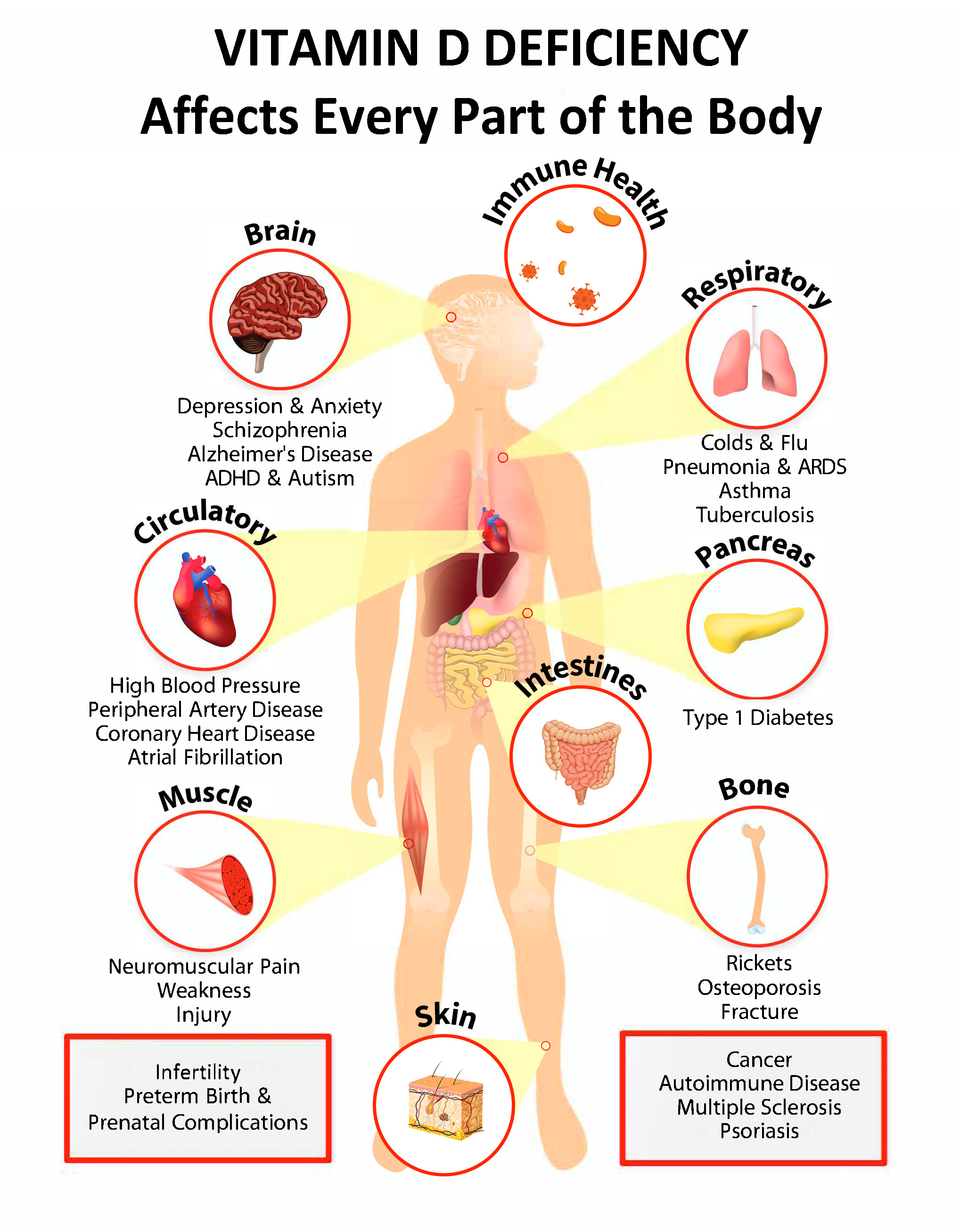
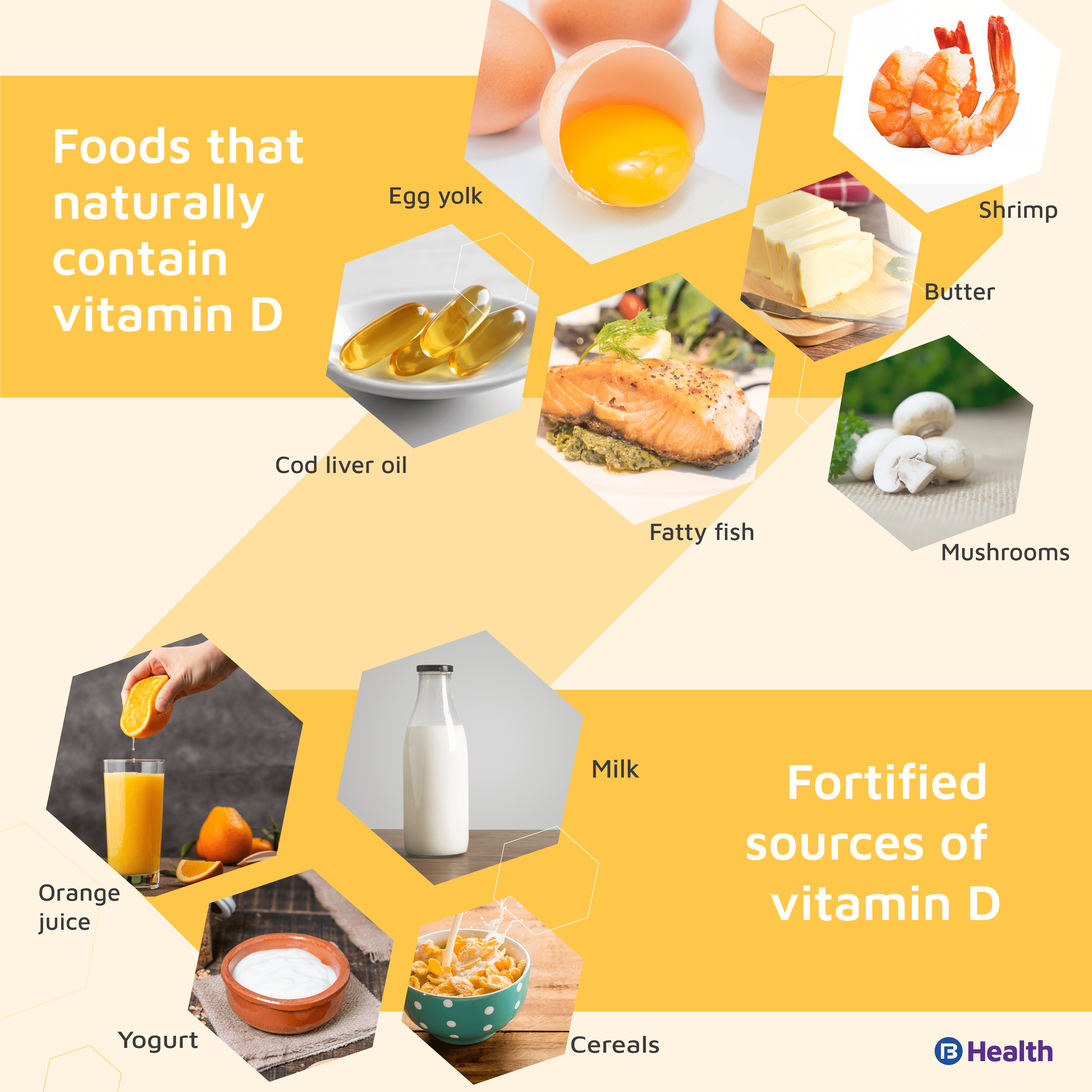
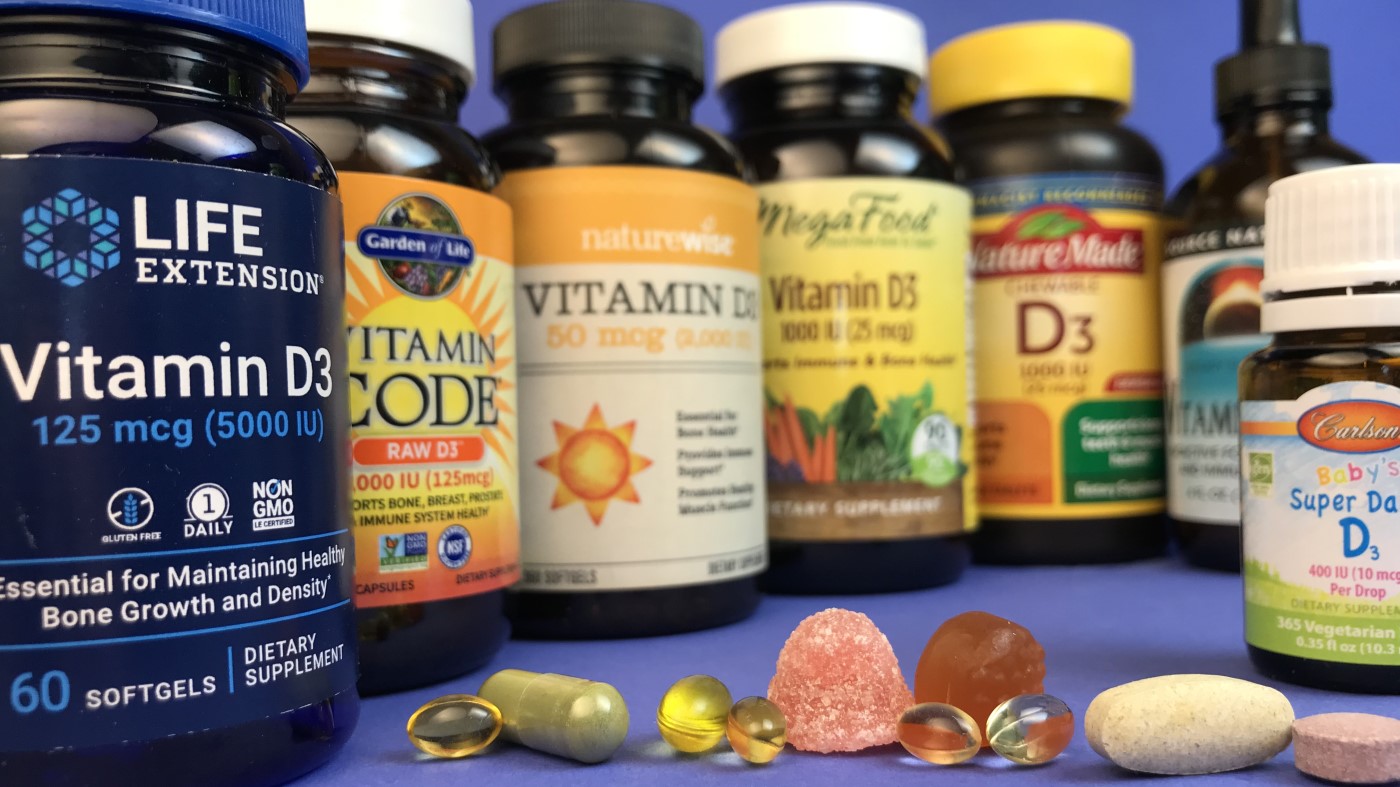
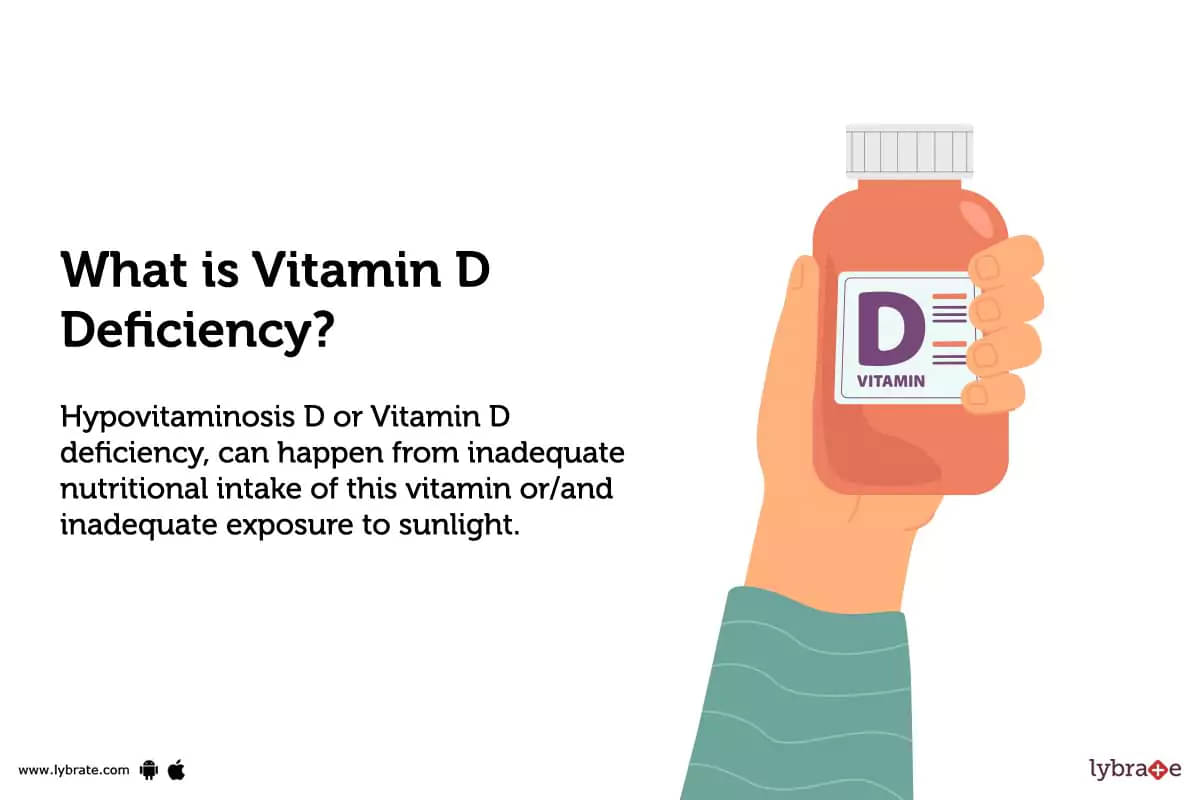


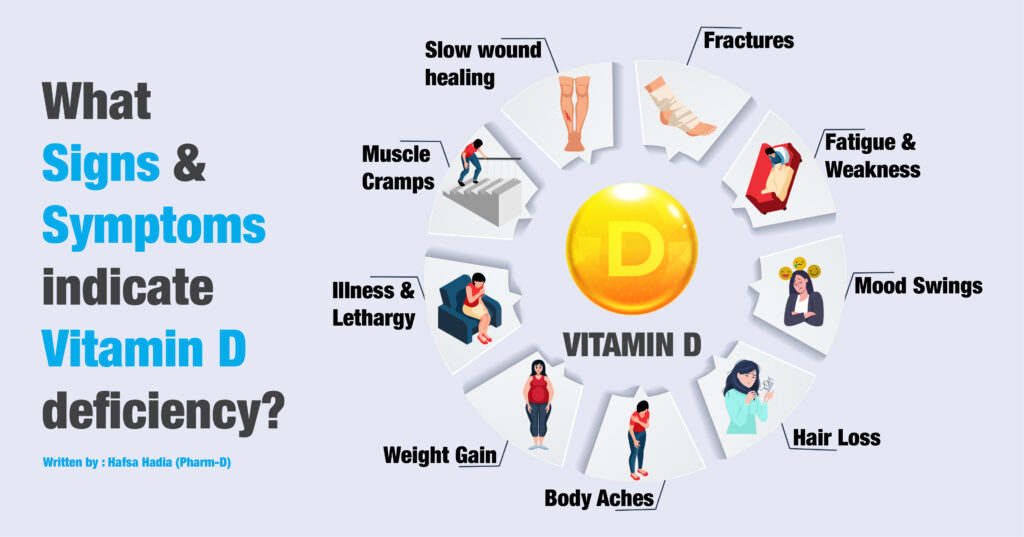


Comments
Post a Comment